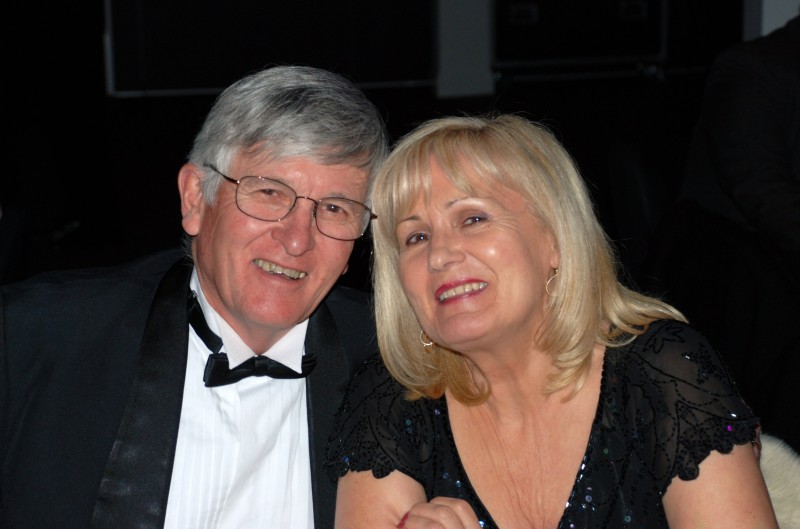ONE of Tasmania’s most popular racing identities veterinarian Dr Art Meeker has been rewarded for his service to harness racing by being awarded the prestigious Edgar Tatlow Medal.
Meeker accepted the medal at the annual Tasmanian Harness Awards presentation dinner at Wrest Point Hotel Casino in Hobart on Saturday night.
“I don’t know that I deserve to be in the same company as some of the talented horsemen and women who have come before me as Edgar Tatlow Medalists but I am humbled by it and accept it with the humility it deserves,” Meeker said.
For the past 24 years Meeker has been a constant in the lives of most thoroughbred and standardbred trainers in the south of the state through his Mobile Clinic business that gave him the edge over his competitors.
Meeker is well respected and many trainers rely on his expertise with not only the health of their animals but how they are prepared for racing.
He arrived in Tasmania from Oregon in the USA in 1972 to establish one of the most successful standardbred studs in Tasmania.
His story is one of courage and adventure but one that gave Tasmanian racing something special.
While Meeker was growing up on the family property at Klamath Falls in Oregon, USA, he dreamed of one day following in his father’s footsteps by becoming a cow-punching cattle rancher.
But somewhere along the way he was sidetracked by horses and his affinity with them eventually led him to a career as a veterinarian and that subsequently guided him to Tasmania
Meeker earned a reputation as a brilliant equine veterinarian with his services much sought after by trainers of both standardbred and thoroughbreds.
While dealing with horses from both codes on a daily basis and having delved in ownership of both breeds, he found it difficult to hide his unrelenting passion for the standardbred.
“From the moment I sat behind a trotter in my mid twenties I was hooked on the standardbred,” Meeker said.
When he realised in his late teens that his rancher days were numbered he enrolled at Washington State University where he studied and graduated with a degree in veterinary science and he specialized in bovine surgery.
His first job was as a teacher at the University of Guelph in Ontario, Canada and once he settled in, a chain of events would eventually lead him to Tasmania.
He enjoyed teaching at Guelph and was starting to take a really keen interest in horses.
People were telling him that the vets in the field weren’t doing what they were supposed to be doing as far as identifying problems with racehorses was concerned so he made further inquiries.
He was out in the field one day and a trainer put him on a trotter to see whether he was sore and when he had finished he said he had never had such excitement and that experience changed his life.
Meeker moved to New Jersey to work alongside a former classmate in a private veterinary practice and it was while working there he met Dave Wallach who had made a success of importing standardbreds from Australia including Claridge.
Meeker recalled that Claridge became a star and at one stage he was the highest stake-earning equine of any breed in the USA.
Wallach had plans to embark on a business venture in Australia which included the development of a standardbred training-breeding complex in Tasmania, so Meeker staked his claim on being a part of the venture.
He told Wallach that he was the man he needed to help him set up the new venture down under and they hit it off so well Meeker was on the next plane to Tasmania.
Meeker and his family arrived in Tasmania in 1972 and so began the Neptune Stud story.
Neptune Stud earned a good reputation quickly and made quite a substantial mark on the state’s breeding industry by importing stallions Holy Sand and Scotch Luck.
Holy Sand was very well received and his progeny won many races and Scotch Luck also was well patronised.
Then came Duke Duane and his progeny won a bunch of races and included The Yank.
Neptune also bred Bosun Neptune that won about 20 races and was placed in close to 50.
Duke Duane sired 304 live foals for 129 starters that resulted in 82 individual winners.
While Neptune Stud enjoyed a great success and at one stage boasted about 300 mares on the property during breeding season and a resident stallion register second to none, Meeker was probably more pleased with the quality of horsemen and women who worked their way through complex.
Neptune Stud bred a lot of really good horses and we sold many of them in Tasmania but a lot were sold to Melbourne and New Zealand.
Some of Meeker’s proudest memories were of some of the people who passed through Neptune including Barrie Rattray who was head trainer and driver at Neptune in the 80s and he won numerous trainer and driver premierships.
But his greatest find was Tammy Mollross who arrived at Neptune straight from school and on Meeker’s recommendation travelled to Victoria to work with the late Bob Knight. Mollross went on to become one of the state’s most talented harness trainer-drivers but she has since gone on to become a talented thoroughbred trainer.
When Wallach opted to sell his share of the stud Meeker had to find some investors and he turned to close friends Greg Pitt and his late father Peter Pitt and the late Bill Tilbury.
The business continued to flourish until 1989 but high interest rates and the recession forced them to sell the property in 1990.
“It was purchased for uses other than a stud but part of the property is still used for training. That parcel of land that boasts the training track was bought a few years ago by Debra Hill whose late father Joe McKenzie was one of the great horsemen of Tasmania,” he said.
With the stud business gone Meeker reverted to his veterinary practice and established Mobile Clinics that gave him an edge on his rivals.
“I was doing outside vet work before Neptune was sold so I had the nucleus of a practice and there wasn’t any other vet operating a mobile clinic.”
“I took my business on the road and it is still going strong,” he said.
Meeker works regularly as on-course vet at all southern-based harness meetings in Tasmania and he is often called upon by racing authorities for advice and as an expert witness at racing appeal hearings.
As an aside to Meeker’s story it should be noted that he died a few years ago only to be revived by a thoroughbred trainer Royston Carr who applied CPR while Meeker lay dormant on his stable floor.
“I owe my life, literally, to Royston Carr and it is fitting that he is here at the function tonight sitting by my side,” Meeker said.
“But it would be remiss of me if I didn’t acknowledge the love of my life, my wife Shirley, because without her love and devotion I wouldn’t be accepting this honour,” he said.
Meeker said despite closing in on 77 he has no plans to retire.
“If there is a God then I’ll die while attending to a horse,” he said.


